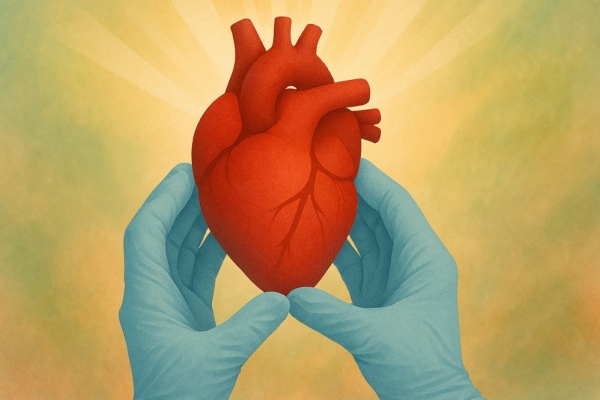
While Kyrgyzstan took a major step forward this year by allowing organ transplants from deceased donors with official support from religious leaders, Tajikistan has yet to follow suit — despite having a legal framework that permits such procedures.
In Kyrgyzstan, more than 3,300 patients with severe kidney failure rely on hemodialysis — an expensive and grueling treatment. The state allocates over 3 billion soms (around $34 million) annually to cover these costs. By comparison, post-transplant therapy for kidney recipients costs only about 250,000 soms per year (around US$2,860).
What is the situation in Tajikistan?
Tajikistan’s Health Code was amended in 2019 to include provisions for organ and tissue transplants. Legally, organs may be retrieved from a deceased person only after brain death is officially confirmed by doctors, and with the consent of the person's close relatives.
Brain death refers to the complete and irreversible cessation of all brain activity. While the heart and other organs may still function with the aid of life support, the individual is considered biologically dead.
Selling organs is strictly prohibited under the law
Yet in practice, organ transplants from deceased donors have not been implemented. Families frequently withhold consent, and both religious and cultural traditions contribute to public hesitation or opposition.
Living donor transplants lead the way — for now
Most transplants in Tajikistan are currently performed using organs from living donors — usually family members. Kidney and liver transplants are the most common.
According to the Ministry of Health, in 2024, surgeons at the National Scientific Transplantation Center in Dushanbe and the Danghara District Hospital performed 298 transplant operations — 74 more than in 2023. Of these, 192 were kidney transplants and 67 involved the liver.
Doctors believe that utilizing organs from brain-dead donors, particularly traffic accident victims who often meet the criteria for brain death, could dramatically increase the number of lives saved. However, multiple barriers have stalled the development of posthumous donation.
Health Minister Jamoliddin Abdullozoda acknowledged the issue at a press conference, stating that a working group has yet to find a viable solution to begin these procedures. He noted that countries with similar religious and cultural backgrounds — including many Muslim nations — are already performing such transplants successfully through special medical and ethical review commissions.
Tajikistan is technically capable of performing life-saving transplants, the minister said, but legal, social, and financial hurdles remain unresolved.
Experts point to public fears about bodily desecration after death and concerns about the potential for abuse or a black market as the primary obstacles to wider acceptance of deceased organ donation.
Islamic perspective and the path forward
In many Muslim countries, religious leaders play a significant role in shaping public opinion — particularly on sensitive topics like organ donation. Tajikistan is no exception, where imams and clerics often approach post-mortem procedures with caution.
However, Husein Musozoda, chairman of the Council of Ulema in Sughd province, clarified that Islam permits organ transplants from deceased donors. “The preservation of life and helping others are core values in all religions, including Islam,” he said.
According to Musozoda, certain organs — like the heart — are treated with particular reverence, which may cause additional hesitation. Still, if the family of the deceased consents, Islam does not forbid the procedure. “Islam teaches us to value life and help others. If an organ transplant can save someone’s life, it is a righteous act,” he emphasized.
Building capacity and changing minds
Abdumalik Salomov, a cardiothoracic surgeon and head of the ischemic heart disease unit at the regional hospital in Khujand, believes a comprehensive approach is needed to advance transplant medicine in Tajikistan. For him, performing a heart transplant is both a personal dream and a professional goal.
Salomov stressed the need for legal reforms to eliminate gaps in existing laws and protect both donors and recipients. Financial support is also crucial — organ transplant procedures and post-op medications are prohibitively expensive for most people and should be partially or fully covered by the state.
For context, a heart transplant in Moscow costs about US$120,000, and monthly post-operative medication can run up to US$3,000. Russian law prohibits performing these procedures on non-citizens.
Salomov also highlighted the need for specialized centers, medical training, and a national donor registry — since not every individual is a suitable match, particularly for heart transplants, which require full biological compatibility.
“It's essential to engage religious leaders and reshape public perception — among both potential donors and recipients. This is a complex and sensitive mission, but one that is well worth the effort,” he concluded.
While Tajikistan is lagging behind, neighboring countries are progressing rapidly. Kazakhstan has already performed hundreds of heart transplants, and Uzbekistan is actively preparing to expand its transplant programs — a necessity given their large populations and growing medical needs.




